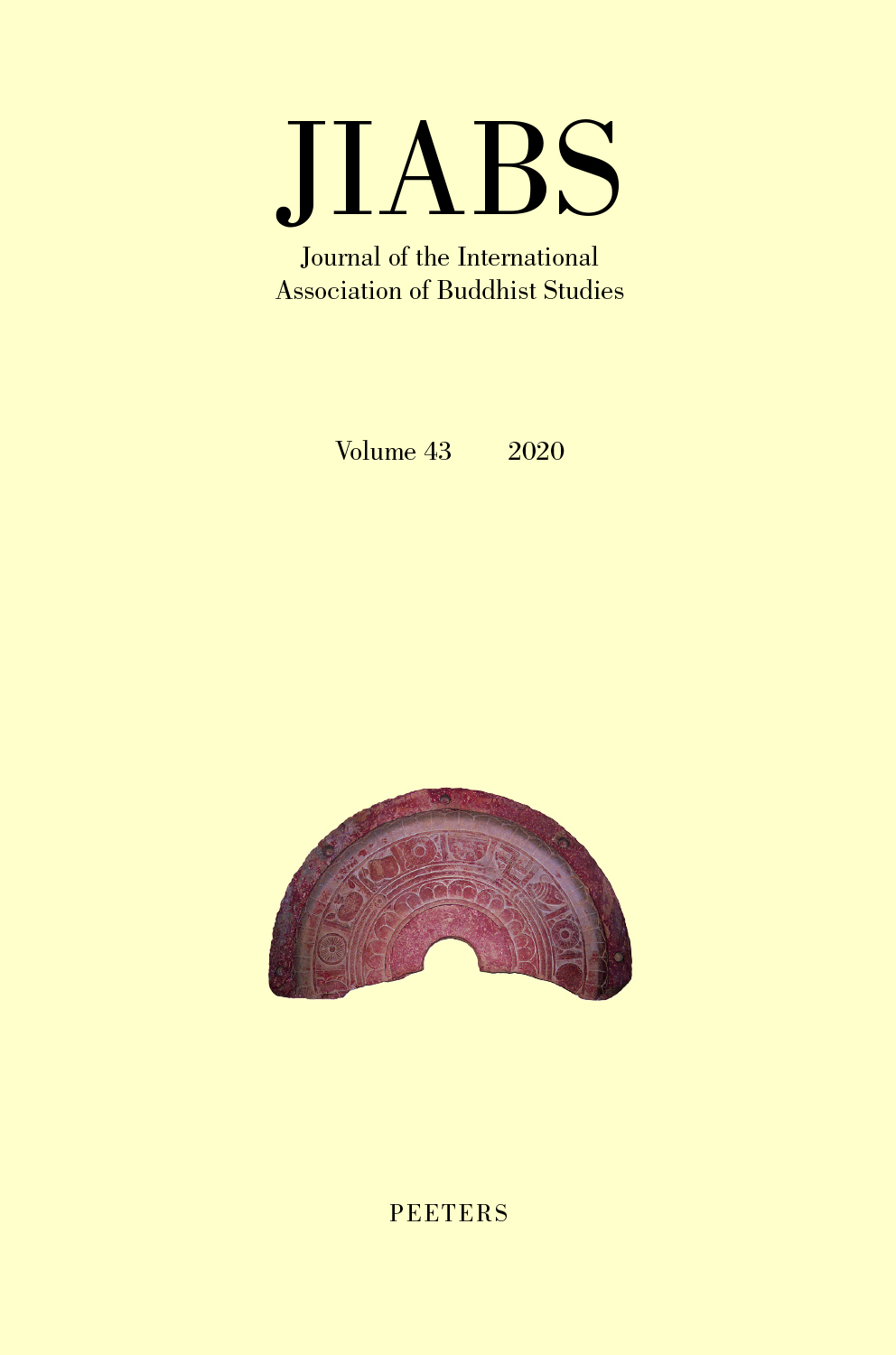 previous article in this issue previous article in this issue | next article in this issue  |

Preview first page |
Document Details : Title: How to Do Things with Natures Subtitle: A Madhyamaka Approach to Arguments and Appearances Author(s): MCCLINTOCK, Sara Journal: Journal of the International Association of Buddhist Studies Volume: 42 Date: 2019 Pages: 405-447 DOI: 10.2143/JIABS.42.0.3287484 Abstract : As Mādhyamikas, the eighth-century Buddhist philosophers Śāntarakṣita and Kamalaśīla are committed to the doctrine of naturelessness (niḥsvabhāvatā) according to which natures (svabhāva) are held to be ultimately unreal. Yet their extensive epistemological tracts depend heavily on reasoning rooted in the so-called 'natural relation' (svabhāvapratibandha) said to pertain between a property that is to be established and the evidence that is said to establish it. Indeed, it is by reliance on this kind of reasoning that Śāntarakṣita and Kamalaśīla seek to establish the very impossibility of natures – thus introducing a degree of paradox into their theories. Some prefer to resolve the tension through a strict delineation between the ultimate and conventional levels of reality, seeing natures as ultimately unreal and only conventionally real. That is fine as far as it goes, but it glosses over how these philosophers understand natures to function in the conventional realm of argumentation. This article turns to the epistemological works, the Tattvasaṃgraha and Tattvasaṃgrahapañjikā, to demonstrate that natures for Śāntarakṣita and Kamalaśīla are phenomenological appearances which are involuntarily experienced as real for the unenlightened. Rational analysis exposes the impossibility of their ultimate reality, but does not by itself change the phenomenological experience of them as real. This is done through yogic perception, but first repeated familiarization with the arguments that demonstrate the impossibility of ultimately real natures is required. Thus the epistemological treatises can be seen as part of the Buddhist spiritual path, even as they themselves are not free of the error of taking natures to be real. Indeed, natures make possible argumentation, which can be conducted both for oneself and compassionately for others and which is in fact just what is accepted by the world. Despite their ultimate unreality, natures qua appearances allow one to skillfully work from within a place of error to gradually reduce and eliminate the ignorance that clings to their apparent ultimate reality. |
 |


